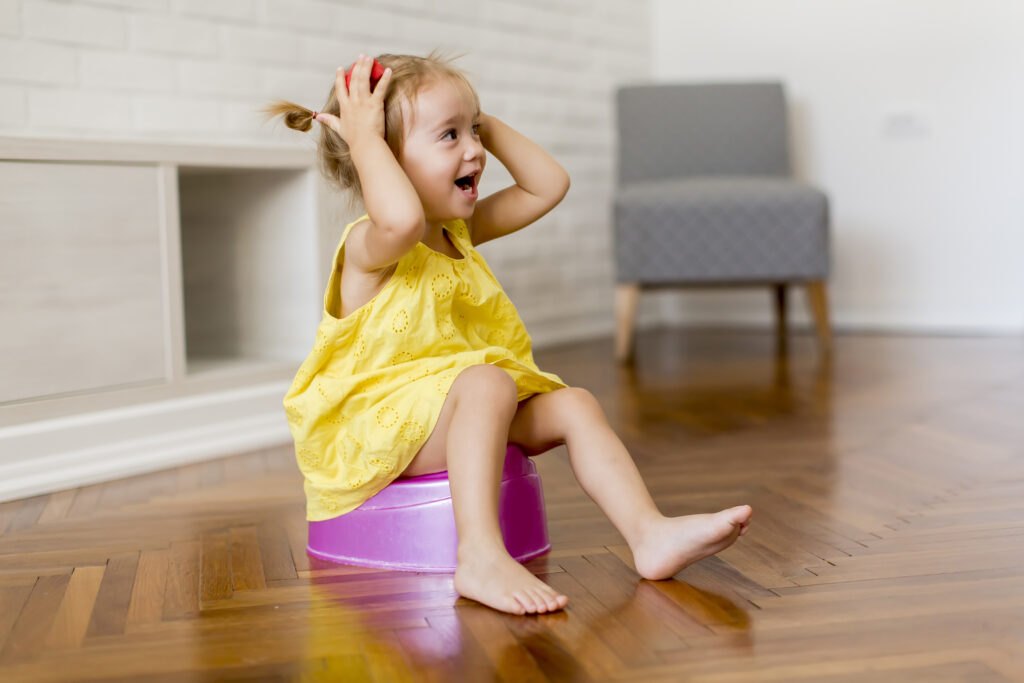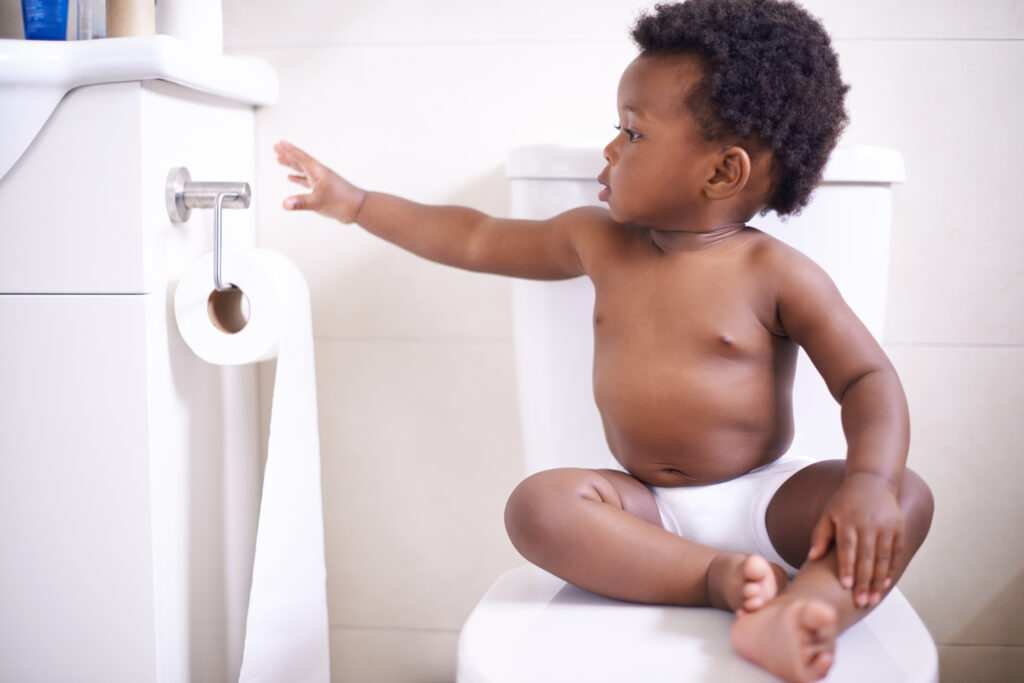
- +61 1300 704 750
- admin@parentinggenie.com.au
- PO Box 706, Townsville, QLD 4810

Potty training is an essential milestone in your child’s life—and yours! It’s a big step towards independence, but it can feel overwhelming for parents and kids. The good news is that potty training can be a smooth and even fun process with the right timing and approach.
This blog will look at when to start potty training and signs that your child is ready. We will also discuss some simple tips to make the process easier for everyone.
There’s no one-size-fits-all answer to when you should start toilet training. Every child is different, and it’s essential to go at your child’s pace. However, most children are ready between 18 months and 3 years old.
Here are a few things to keep in mind:
Potty training works best when your child is physically and emotionally ready. Starting too early might frustrate both of you.
2.Consider Their Development
Your child needs to have some control over their bladder and bowel movements before they can use the potty. This usually develops between 18 and 24 months.
3.Timing Matters
Avoid starting potty training during stressful times, such as moving to a new house, the arrival of a new sibling, or starting daycare. A calm environment helps your child focus.
How do you know when your child is ready? Look for these signs:
Once your child shows signs of readiness, you can begin. Here are some steps to get started:
1. Introduce the Potty
Start by showing your child the potty. Let them sit on it with their clothes on to get used to it. Explain what the potty is for in simple words, like, “This is where we go pee and poop.”
2. Create a Routine- Top Tips
Set regular times for your child to sit on the potty, like after meals or before bed. Sitting on the potty helps them understand the process even if they don’t go.
3. Use Positive Reinforcement
Celebrate small successes with claps, hugs, or a sticker chart. Avoid punishments for accidents; they’re a natural part of learning.
4. Teach Bathroom Basics- Child Rearing
Show your child how to wipe correctly (front to back for girls), flush the toilet, and wash their hands. Make it fun by using colourful soap or a handwashing song.
5. Be Patient- Child Feelings
Potty training takes time. Some children learn quickly, while others need more practice. Stay calm and supportive.

Here are some extra tips to make the process easier for both you and your child:
1. Let Them Pick Their Potty
Take your child shopping for a potty chair. Letting them choose one can make them feel excited about using it.
2. Read Books
There are many children’s books about potty training, like “Potty” by Leslie Patricelli or “Everyone Poops” by Taro Gomi. These books can help your child understand what to expect.
3. Use Training Pants
Training pants are a great transition between diapers and underwear. They’re easy for your child to pull up and down but can handle minor accidents.
4. Dress for Success
Put your child in easy-to-remove clothes, like pants with elastic waistbands. Avoid buttons or zippers during potty training.
5. Make It Fun
Turn potty training into a game by using rewards or a timer. For example, you can set a timer every hour and say, “It’s potty time!”
6. Lead by Example: Role Model
Let your child see you or older siblings using the toilet. Kids love to copy what they see.
7. Stay Consistent: Supporting Parenting
Once you start potty training, stick to the plan. Consistency helps your child understand what’s expected.
Accidents will happen—it’s a normal part of potty training. Here’s how to handle them:
Potty training is a significant accomplishment! Celebrate your child’s progress, no matter how small. Let them know you’re proud, whether it’s their first time sitting on the potty or their first accident-free day.
You can:
Potty training is a journey, and every child’s path is unique. By waiting for readiness, staying positive, and keeping things fun, you can make the process smoother for you and your child. Accidents are part of learning, and with patience and encouragement, your little one will get the hang of it quickly.
Parenting Genie has comprehensive resources for a smoother journey from pregnancy to raising 5-year-olds. Genie Chat and Parenting Live Expert are available 24/7 to provide instant parenting answers.
You can also book a Zoom or Telehealth consultation with a maternal and child health nurse or a certified lactation consultation.
The Raising Children website has more tips and insights on potty training.